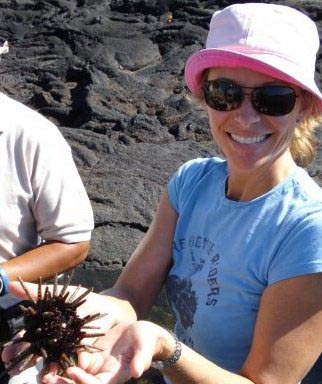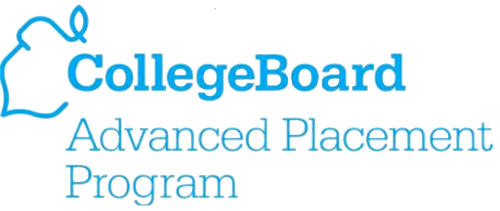Biology
Over the course of this 4-day workshop, new and experienced teachers alike will become familiar with the recently updated Course and Exam Description (CED) in AP Biology (2020). The updated CED organizes the course into eight commonly taught units:
1: Chemistry of Life
2: Cell Structure and Function
3: Cellular Energetics
4: Cell Cycle
5: Heredity
6: Gene Expression and Regulation
7: Natural Selection
8: Ecology
The major focus of this Advanced Placement Summer Institute will be on the changes to the CED, lab investigations, and the new resources available to teachers. The updated course framework clearly connects each learning objective to specific essential knowledge and includes biology – specific science practices that build skills to help students learn to think and act like biologists. Particularly important will be the time and skill set necessary to support teachers in implementing more inquiry-based investigations and participants will be given tools and strategies for modifying traditional experiments into inquiry-based models. Participants will become familiar with hands-on lab investigations in the updated lab manual AP Biology Lab Investigations: An Inquiry-Based Approach (2020) as well as explore creative alternatives to these labs. We will also examine the new AP Biology exam design and essay grading. There will be time carved out for teachers to begin working on their AP Biology syllabus specific to their school’s daily schedule and calendar so the AP Course Audit process will be made easier.
Participants will need to bring a calculator, camera (phone or digital), laptop computer, and a favorite Investigation activity to share on our Google folder (invitations emailed the first day of the workshop).
AP Central AP Biology Updates:
https://apcentral.collegeboard.org/courses/ap-biology/course/updates-2019-20?course=ap-biology
Day 1:
AM
Welcome, K-W-L sharing
Key Takeaway 1: Understanding the Course and Exam Description (CED)
- Building conceptual understandings by linking Learning Objectives (testable) and Essential Knowledge (content) in each Big Idea.
- Applying content in new, relevant, and unfamiliar contexts using Science Practices (Skills) and Essential Knowledge.
Activity: Teaching for Transfer by Applying the Science Practices
Practicing the Practices:
Investigation #11 Transpiration Set-Up
Investigation 13 Enzyme Catalysis using Yeast or Potatoes and Hydrogen Peroxide
Activity: Teaching for Understanding of Content and Skills
Activity: Understanding the Course Framework and Big Ideas
PM
- Planning Your Course Using Unit & Pacing Guides (plan the first few weeks of your course on your own or with teachers who have similar schedules – 2 hours)
- AP Biology Exam Structure and Scoring
- Prep Sucrose Solutions
Checklist for the day:
- Required Topic 1 – Course and Exam Description (CED) (2 hours):* Examine each section of the CED and make connections to the Curricular Requirements
- Required Topic 2 – Course Introduction (1 hour):* Outline the instructional plan by Unit and Topic in an academic calendar
- Activity: Exploring the Unit Guides (and treasure hunt map)
- Applying the Science Practices to design, conduct & analyze two lab investigations
————————————————————————–
Day 2:
AM
Transpiration Data Collection Day 2 via Small Scale/Balance
Lesson 9 Scaffolding and Spiraling the Practices
Lesson 11 Instructional Approaches & Strategies
Practicing the Practices:
Lesson 12 (p. 97 workbook) Lab Experience #2: Investigation 4 – Set Up Diffusion and Osmosis in Potatoes or Carrots
Investigation 9 DNA Gel Electrophoresis: Foodborne Outbreak (MiniOne kits supplied free of charge with return labels)
Key Takeaway 2: Planning the Course
- Sequencing, Pacing
Activity: Analyzing Science Practices and Learning Objectives on Exam Questions
Activity: Scaffolding and Spiraling the Science Practices
PM
- Lessons 10 & 13 (1 hour): Instructional Strategies & Planning Your Course
- Assess and Reflect (1 hour):Practice interpreting data within the Instructional Planning Report to identify student strengths and weaknesses and reflect on implications for instruction
- AP Classroom Deep-Dive (2 hours): Learn how AP Classroom can be utilized to develop each skill/practice using example student data provided by the College Board and develop lesson plans that reinforce topic and skill connections.
Checklist for the day:
- Required Topic 5 – Strategies and Pedagogical Tools – Identify various instructional strategies and tools that teachers can incorporate in their lesson plans to teach the content and skills in the Course and Exam Description
- Applying the Science Practices to design, conduct & analyze two lab investigations
- Required Topic 3 – AP Classroom Deep Dive
- Required Topic 4 – Assess and Reflect Practice interpreting data within the Instructional Planning Report to identify student strengths and weaknesses and reflect on implications for instruction
————————————————————————–
Day 3
AM
Practicing the Practices:
Lesson 12 Lab Experience #2 (p. 97 workbook) Wrap up Investigation 4 – Osmosis and Data Analysis with Water Potential & CER
Lesson 20 Lab Experience #3 (p. 149 workbook) : Investigation #3: Using BLAST to Determine Evolutionary Relationships
Lesson 17: AP SP #5 Statistics and Data Analysis
Lesson 18: AP SP #6 Argumentation
Key Takeaway 3: Teaching the Course
- Teachers need a deep understanding of content and applications
- Using effective instructional strategies to help develop course skills and content knowledge
- Practice make perfect
- Creating community within a classroom
PM
Transpiration Data Collection via Small Scale/Balance Day 3
Lesson 14: SP #2 Visualizing Info (0.5 hour)
Lesson 15: AP SP #3 Questions and Methods (0.5 hour)
Lesson 21: Connecting the Exam to the Curriculum (0.5 hour)
Activity: Planning Your Course Using Pacing Guides (plan the first quarter of your course with teachers who have similar schedules). (1.5 hours)
Investigation 8: pGLO Bacterial Transformation
Checklist for the day:
- Required Topic 5 – Strategies and Pedagogical Tools – Identify various instructional strategies and tools that teachers can incorporate in their lesson plans to teach the content and skills in the Course and Exam Description
- Applying the Science Practices to design, conduct & analyze two lab investigations
————————————————————————–
Day 4
Practicing the Practices:
Alternative to Investigations 5 & 6 Cell Respiration and Photosynthesis in Algae Beads (Biorad kits supplied free of charge)
Lesson 25 Lab Experience #4 (p. 201 handbook): Wrap up Transpiration Lab and Analyze Results in CER Format
Lesson 28 Lab Experience #5 (p. 219 handbook): Investigation 12 – Animal Behavior with Pillbugs
Activity SP 5 – Statistics and Data Analysis
Activity SP 6 – Argumentation
Investigation 2 Overview: Hardy-Weinberg Equilibrium (if time permits)
Key Takeaway 4: Assessing Student Progress and Understanding
- Aligning assessments and instruction to learning goals and performance standards
- Challenging students to apply their knowledge and skills in different contexts for deeper understanding
- Time, practice and feedback
- Understanding is earned over time
Lesson 23: Formative Assessments vs. Summative Assessments
Lesson 24: Scoring Free Response Questions
PM Asynchronous
Key Takeaway 5: Becoming a Member of the AP Community
Lesson 27: Course Audit and Curricular Requirements
Lesson 29: AP Teacher Community and Additional Resources
Evaluations
Checklist for the day:
- Applying the Science Practices to design, conduct & analyze two lab investigations
- Required Topic 4 – Assess and Reflect: Practice interpreting data within the Instructional Planning Report to identify student strengths and weaknesses and reflect on implications for instruction
- Required Topic 5 – Strategies and Pedagogical Tools: Identify and explain various instructional strategies and tools, in addition to AP Classroom, that teachers can incorporate in their lesson plans to teach the content and skills in the Course and Exam Description
Happy Teaching!
Cheryl Gray Mitchell graduated from the University of California, San Diego with a B.A. in Biochemistry and Cell Biology and she has spent 20 years in the classroom sharing her love of the natural world and inspiring students to reach the high expectations inherent in every science program. Cheryl’s teaching experience encompasses all levels of biology and chemistry (AP, honors, grade level) and, after spending 10 years teaching AP Biology and Honors Chemistry at The Episcopal Academy, she moved to Tower Hill School in Delaware where she currently teaches AP Biology, AP Chemistry and Honors Chemistry. Cheryl has been a faculty consultant for The College Board since 2003, serving on the senior leadership team as a Question Leader for the AP Biology exam and she teaches workshops and summer institutes in AP Biology and Quantitative Skills. Cheryl has been active in the annual AP National Conferences, presenting at the pre- and post-conference workshops for experienced AP Biology teachers at the 2018 conference in Houston and previously in Las Vegas. Cheryl’s publishing work as a freelance author for McGraw – Hill Higher Education includes revising the test bank that accompanies Peter Raven’s Biology textbook (2014) and the creation of an updated, standards – correlated AP Biology practice exam for Sylvia Mader’s Biology textbook (11th ed, 2013). In 2015 Cheryl became a content author for the online STEM platform Albert.io and she began working as a consultant for the National Math and Science Initiative (NMSI) in 2016, providing Student Study Sessions and mentoring new AP Biology teachers in different regions of the country. Most recently, Cheryl became a contracted writer for Educational Testing Service, writing test items for the official AP Biology exam.

Cheryl Gray Mitchell
M.s. Degree, University of California
Institute Faculty
The faculty have been selected for their teaching expertise, creativity, innovations in teaching and experience with the AP* Program curriculum. All faculty members are endorsed and certified by the Middle Atlantic Regional Office of The College Board and have demonstrated a commitment to excellence that is second to none.
Daily Schedule
Classes run from 7:30-400 – Instructors will send you an agenda with their class times. Class times may vary depending on the instructor.
Opportunity
Instructors encourage sharing among participants that will enhance the knowledge and skills of all participants for effective teaching. The opportunity to exchange and communicate with instructors and colleagues within the Middle Atlantic Region and beyond is a valued support resource for the entire school year.
Questions/comments
Questions/concerns about your particular course can be addressed by going to course description and clicking on the “Ask a Question” button. You will then be able to e-mail the instructor. Any problems call the Lewes AP* Summer Institute office at 302-567-1400.

* This Summer Institute has been endorsed by Advanced Placement Program, AP, Pre-AP, College Board and it’s logo are registered trademarks of the College Board.

